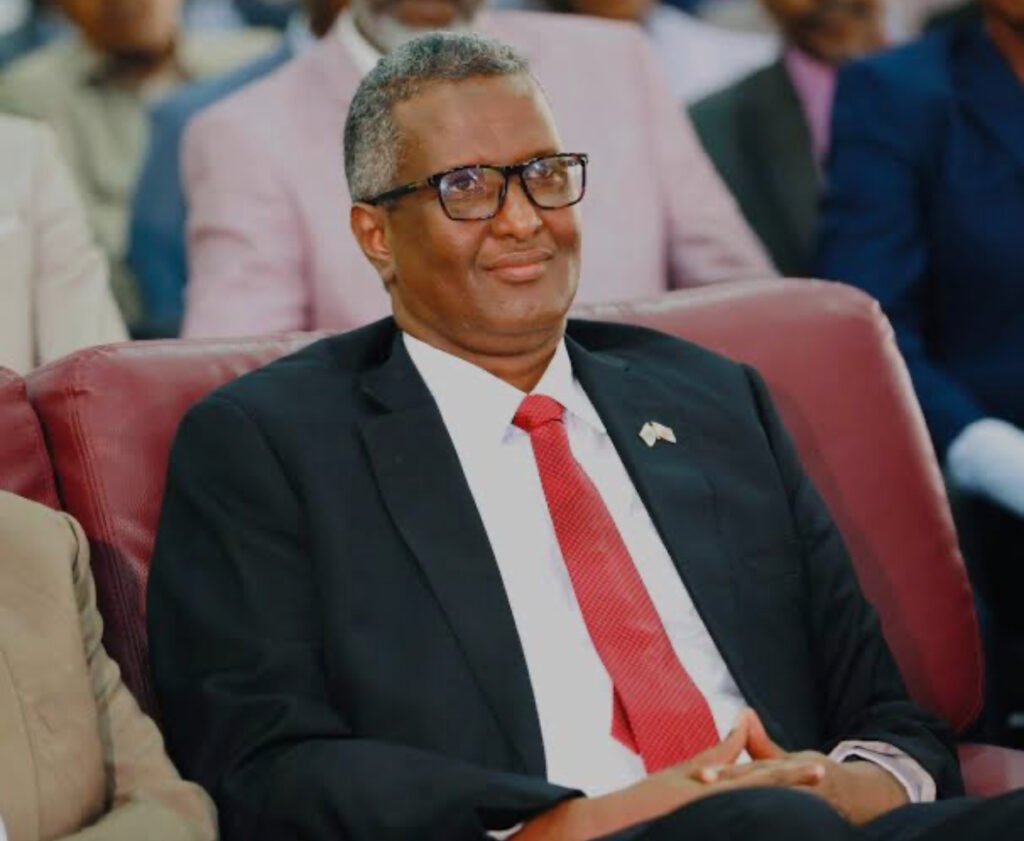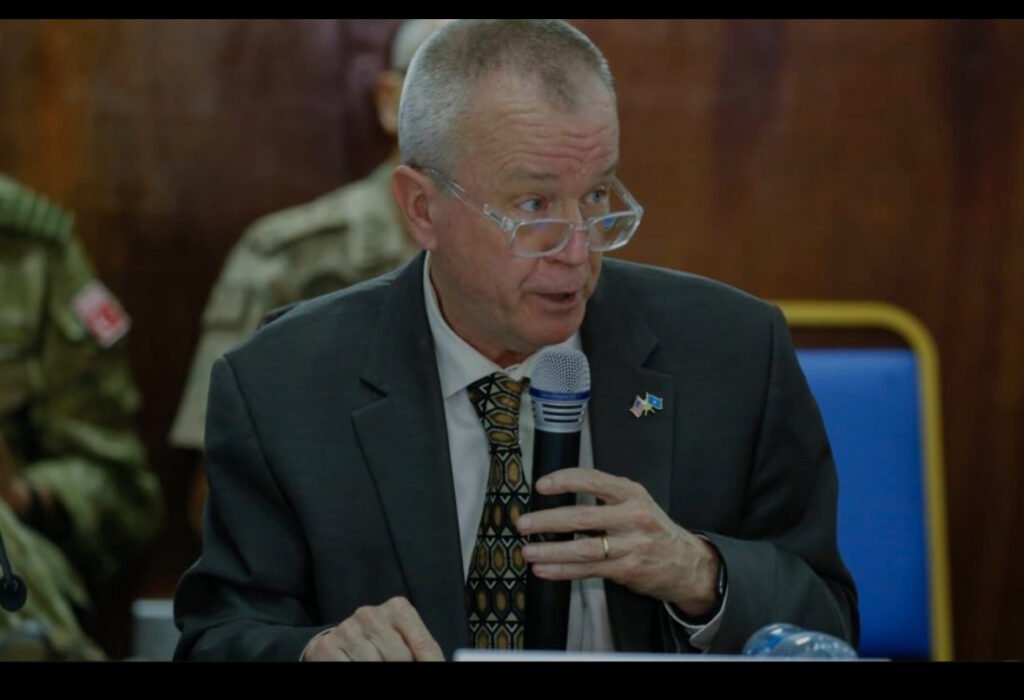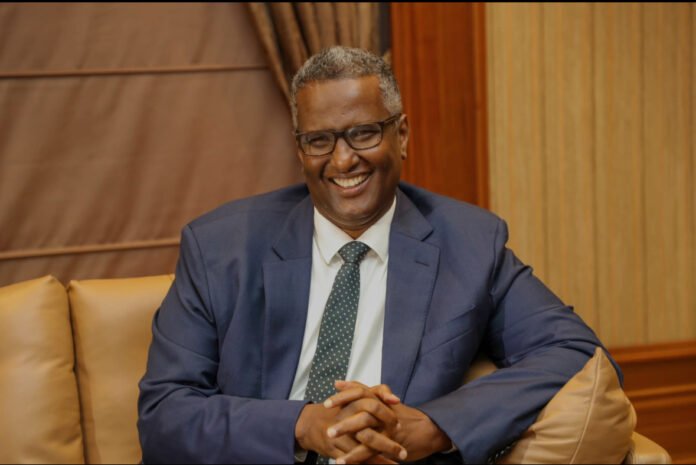By Horn Africa News
MOGADISHU – Somalia’s opposition leader Abdirahman Abdishakur Warsame has highlighted remarks by former US Ambassador to Somalia, Larry André, who cautioned Washington against granting unilateral recognition to Somaliland. In a Substack article, André—now a university lecturer—offered detailed recommendations for US policy on the Horn of Africa.

According to André, recognizing Somaliland without a negotiated settlement would not directly harm US interests, but would intensify suffering for communities in the region. “America’s interest lies in a peaceful, stable, and prosperous Horn of Africa,” he wrote, warning that clan dynamics across Somalia, Ethiopia, Kenya, and Djibouti remain deeply intertwined and volatile.

The veteran diplomat, who spent 38 of his 44 years in service in Africa—including 24 years in the Horn—outlined several key points:
1. International Law & Borders: Unilateral recognition would violate international norms and undermine the territorial integrity of Somalia as recognized in 1960. Recognition, he noted, is only viable if Somalia and Somaliland reach an agreement, similar to South Sudan or Eritrea’s independence.
2. Clan Politics in Somaliland: André argued that Somaliland’s push for independence is led mainly by the dominant Isaaq clan, which suffered heavily under Siad Barre’s regime. Other clans such as the Dir and Darod prefer federal self-rule within Somalia but face restrictions on openly expressing pro-union views in Somaliland.
3. Geopolitical Fallout: A US move could strain relations with Somalia, the African Union, and regional allies, opening the door for rival global powers. He noted Taiwan is the only entity recognizing Somaliland, and it remains unrecognized by the UN.
4. Security Concerns: While allegations of cooperation between Somaliland and al-Shabaab remain unproven, André warned that Somaliland benefits from the fight against terrorism in southern Somalia. If al-Shabaab were to gain ground in the south, Somaliland would not remain immune.
5. Relative Stability: He acknowledged that Somaliland is more secure, economically developed, and politically stable than Somalia.
6. Failed Talks: He criticized Mogadishu for the collapse of Djibouti-hosted talks in 2020, saying progress is possible if negotiations are approached with sincerity and creativity, citing global examples of successful conflict resolution.
Policy Recommendations
André proposed that the US:
• Engage, Don’t Recognize: Open a diplomatic office in Hargeisa under the US Embassy in Mogadishu to deepen ties without making hasty recognition decisions.
• Facilitate Dialogue: Revive Somalia-Somaliland talks aimed at a creative federal arrangement with broad autonomy.
• Expand Consultations: Involve regional powers, international partners, pro-unity Somalilanders, and marginalized elders silenced by Hargeisa authorities.
Concluding his analysis, André urged Washington to base its approach on “knowledge, caution, and consultation,” warning that a unilateral step could create more risks than benefits.





